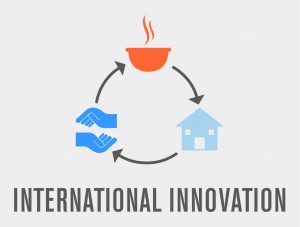 It is clear that the global poor are going to be disproportionately affected by the growing spate of environmental catastrophes in the 21st century, such as the terrible and historic flooding in Pakistan. If we want to preserve and increase global well-being, we need to take responsibility for the systemic causes of these environmental issues, which originate — for the most part — in the consumer societies of Europe and the USA. Climate change is only one of the issues that is causing, and will continue to cause, an increase in human misery unless we take coherent action to change things. Johan Rockstrom of the Stockholm Resilience Center talks here about his work on the 9 planetary boundaries that his team has identified which, if permanently crossed, will lead to catastrophe. These include such issues as biodiversity loss, and freshwater usage, as well as more familiar ones such as atmospheric carbon. We have already crossed several of these boundaries. It is time to take action to bring us back into alignment with reality. This is the core paradigm shift we will be exploring at SOCAP10 this year, in the Transformative Innovation in International Development track, which I am curating, along with the help of my friends at Collective Invention.
It is clear that the global poor are going to be disproportionately affected by the growing spate of environmental catastrophes in the 21st century, such as the terrible and historic flooding in Pakistan. If we want to preserve and increase global well-being, we need to take responsibility for the systemic causes of these environmental issues, which originate — for the most part — in the consumer societies of Europe and the USA. Climate change is only one of the issues that is causing, and will continue to cause, an increase in human misery unless we take coherent action to change things. Johan Rockstrom of the Stockholm Resilience Center talks here about his work on the 9 planetary boundaries that his team has identified which, if permanently crossed, will lead to catastrophe. These include such issues as biodiversity loss, and freshwater usage, as well as more familiar ones such as atmospheric carbon. We have already crossed several of these boundaries. It is time to take action to bring us back into alignment with reality. This is the core paradigm shift we will be exploring at SOCAP10 this year, in the Transformative Innovation in International Development track, which I am curating, along with the help of my friends at Collective Invention.
–By David Hodgson Track Curator for Transformative Innovation in International Development (Cross Post from Ideahive)

